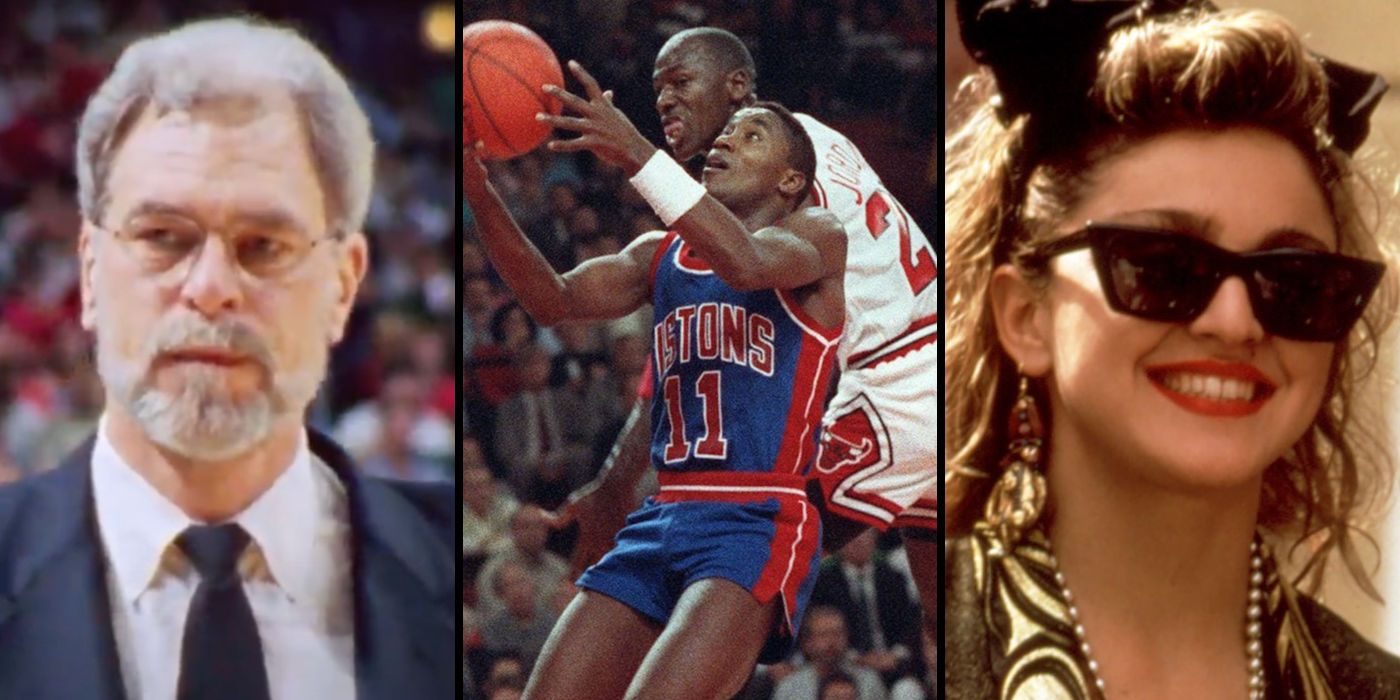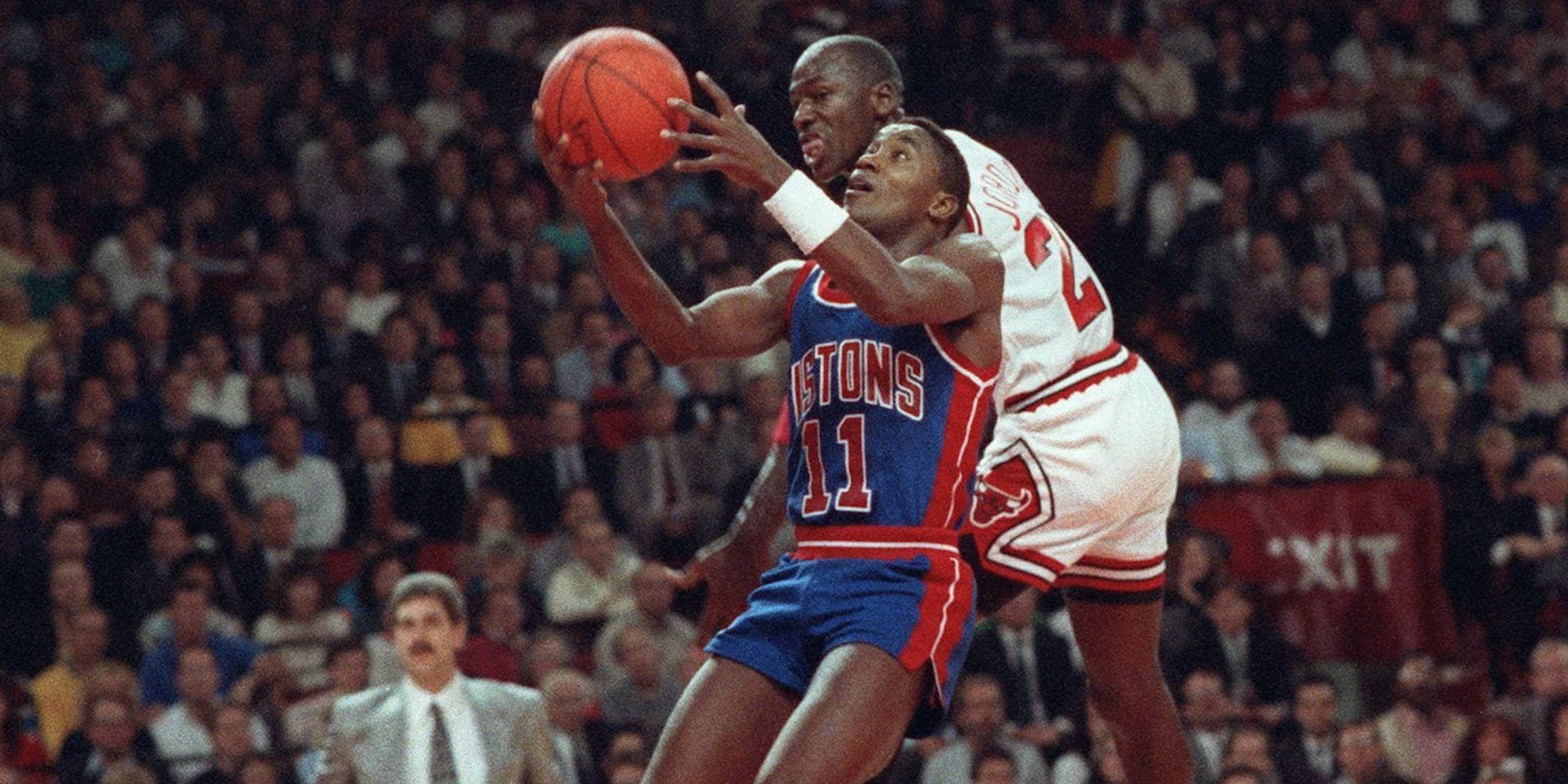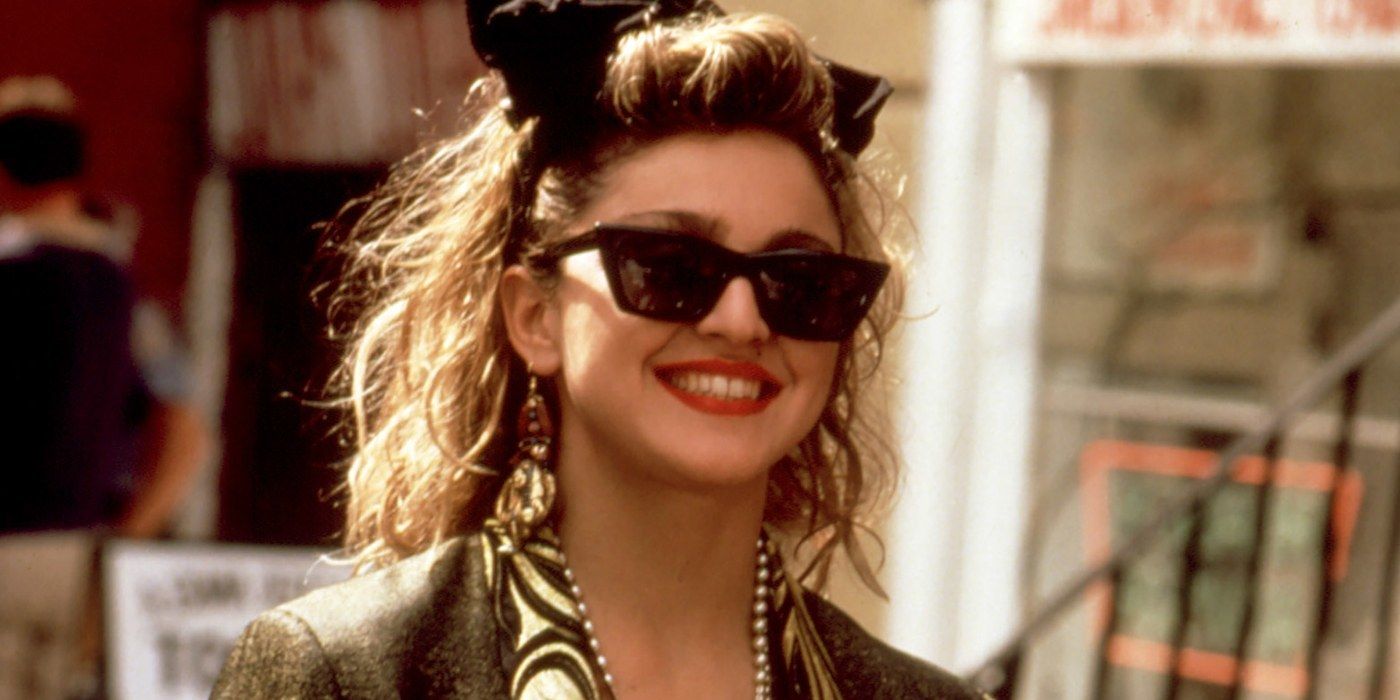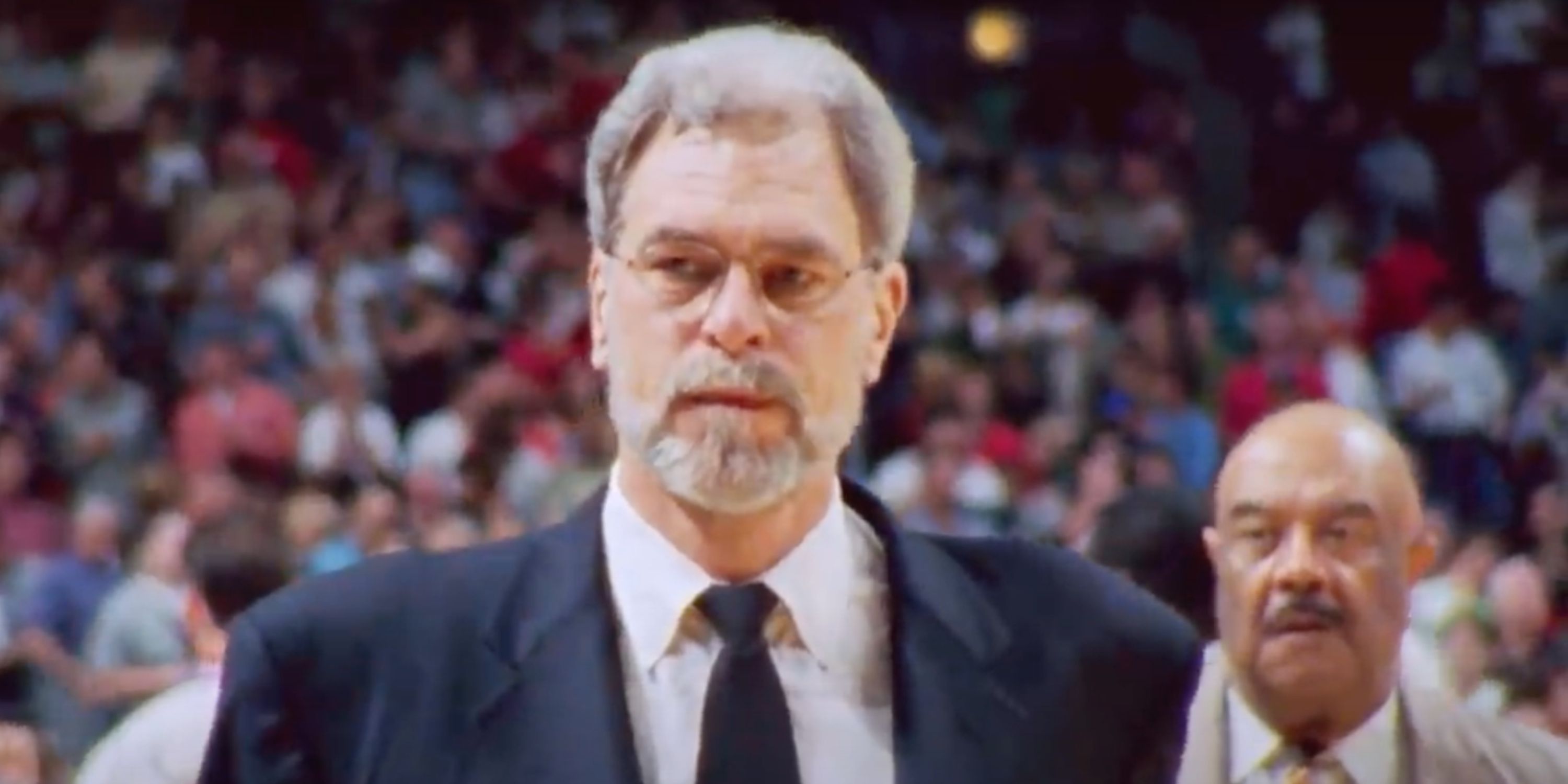
Based primarily on the 1997-98 Chicago Bulls season, The Last Dance features a multitude of news-making NBA revelations and first-hand testimony from the one and only Michael Jordan - and here are the biggest reveals from episodes 3 and 4. The 10-part docuseries was directed by Jason Hehir, and explores all the behind the scenes drama involving a dynastic professional basketball franchise.
Prior to the 1997-1998 NBA season, the Chicago Bulls allowed filmmakers to document what became known as "The Last Dance." The first two episodes of the ESPN/Netflix docuseries establish the context for Jordan's backstory and motivations, along with the personality traits that helped him overcome the odds upon entering the NBA. The Last Dance opens with the Chicago Bulls challenging the Larry Bird-led Boston Celtics during the mid-'80s, only to be overwhelmed by a roster full of more athletic and talented players.
Related: The Last Dance: Biggest Reveals From The First Two Episodes
The Last Dance episodes 3 and 4 document the Bulls' failed attempts to defeat the Detroit Pistons, a team of "bad boys" who were next in line after the Celtics' reign. Early in Jordan's career, he was allowed to single-handedly take over games. But after failing in the playoffs, the late '80s Bulls were forced to reconsider their collective approach. Here are the biggest reveals from The Last Dance episodes 3 and 4.

By late-1997, Rodman had begun his third season with the Bulls, and unexpectedly took on a bigger role after Scottie Pippen was sidelined due to surgery. News clips show that both Jordan and coach Phil Jackson were frustrated with the team's defensive efforts - specifically from Rodman, who seemingly lost enthusiasm for playing the game. Jordan recalls a hotel room visit from Rodman after a loss, which didn't involve a verbal apology but rather an indirect acknowledgement that he needed to be more accountable. "Now, Dennis never comes to my room," Jordan says, "And he comes and said, 'Man, you got an extra cigar?'" Jordan accepted his teammate's unorthodox gesture, which connects to subsequent stories in the docuseries about he and Jackson doing everything they could to accommodate Rodman's notoriously unpredictable personality.
When Pippen returned later in the season, Rodman informed Jordan and Jackson that he needed a "vacation." The Last Dance episode 4 chronicles Rodman's 48-hour pass, which he used to party in Las Vegas with his girlfriend, Carmen Electra. When the Bulls' defensive wizard didn't return on time, the team decided to track him down. Even though the NBA docuseries implies that MJ traveled to Vegas and dragged him out of bed, the director recently clarified that Rodman had a "flophouse" apartment across the street from the United Center, where the Bulls play their home games (via SI).

In the sports world, the major takeaway from The Last Dance's most recent episodes is that Jordan still despises the late-'80s Pistons. In fact, MJ states that "the hate carries to this day." Part of this stems from the fact that Detroit knocked the Bulls out of the playoffs for three consecutive seasons between 1987 and 1990. The Pistons were, indeed, the conflict that Jordan and the Bulls had to overcome, but they just didn't have the necessary talent. In addition, Detroit had famously implemented "The Jordan Rules," in which their team of rough-neck "bad boys" would minimize MJ's impact on the game by playing physical. In the docuseries, Detroit's former assistant coach Brendan Malone details how his squad would push Jordan to the elbow of the court, force him to the left, and trap him from the top. During the late '80s, this technique was successful in defeating the Bulls. In response, Jordan gained 15 pounds and decided to be more aggressive.
Jordan's present-day "hate" for the Pistons connects to a moment when Chicago finally beat Detroit in the 1991 NBA Playoffs. Minutes before a four-game sweep was official (and MJ won his first Eastern Conference championship), the Pistons' Bill Laimbeer orchestrated a team walk-out rather than shaking hands with their opponents. In The Last Dance, various Bulls players offer scathing thoughts about the experience, whereas Thomas - one of the Pistons' stars - suggests that times were different back then, and states, "When you lost, you left the floor. That's it." In response to watching Thomas' comments, Jordan scoffs and says, "Well, I know it's all bullsh*t." After The Last Dance episode aired, Thomas implied that his team walk-off prevented him from making the "Dream Team" - the U.S. Olympic squad that competed in the 1992 Summer Olympics.

Since the early '90s, Rodman has been a household name in pop culture. At first, he was known as a defense NBA wizard and a dirty player who prioritized rebounds over scoring. Later, Rodman challenged preconceived notions about how professional athletes should look, specifically with his personal style. In some circles, Rodman may be known most for his off-the-court lifestyle, rather than his legacy within the NBA. Whatever the case, he continues to make headlines, evidenced by trips to North Korea in recent years to visit Kim Jong-un.
The Last Dance explains how and why Rodman changed his style after leaving the Detroit Pistons. In 1993, the movie Demolition Man released just weeks before the new NBA season commenced, and Rodman paid homage to Wesley Snipes' character, Simon Phoenix, by bleaching his hair blonde while playing for the San Antonio Spurs. Rodman's new look caught the attention of Madonna, and the two soon began a romantic relationship. According to former NBA player John Salley, Madonna told Rodman, "You have to establish who you want to be in this life. Don't be who they tell you you should be." From there, Rodman transformed from a popular NBA player into a pop culture star. The following year, he joined the Chicago Bulls and ultimately became a five-time NBA champion.

It's no secret amongst NBA fans that Jackson is known as the "Zen Master," a philosophically-minded coach who ran a unique offense known as "The Triangle." But for those who watch The Last Dance with little understanding about the focal storyline, it may be a surprise to learn that Jackson was indeed once an NBA player himself. The Last Dance dedicates an entire sequence in episode 4 to Jackson's backstory, and how he was influenced by Native-American culture while growing up in Montana and North Dakota. Jackson later played over a decade in the NBA, and then began his coaching career in both the CBA and Puerto Rico.
The Last Dance reveals that Jordan wasn't a huge Jackson fan when he became the Bulls head coach in 1989, primarily because his offensive approach meant that the Bulls star would shoot less and pass more. Jackson was known for being a so-called "free spirit," which resulted in a failed job interview upon an initial meeting with Chicago a few years before. After cleaning up his look and gaining experience under Doug Collins, Jackson was promoted to turn the Bulls into a championship team. By the 1997-98 season, the focus of the docuseries, the Zen Master had won five NBA titles with Jordan and knew how to handle players like Rodman - the "Heyoka," or "scared clown," of the Bulls "tribe." Jackson would later go on to win five more NBA titles with Kobe Bryant and the Los Angeles Lakers (11 overall).
from ScreenRant - Feed https://ift.tt/2yTDnIy





No comments: